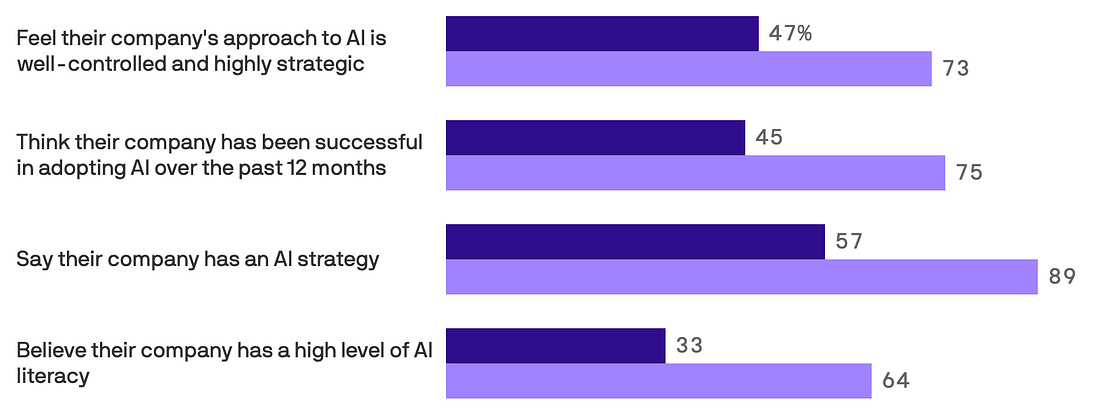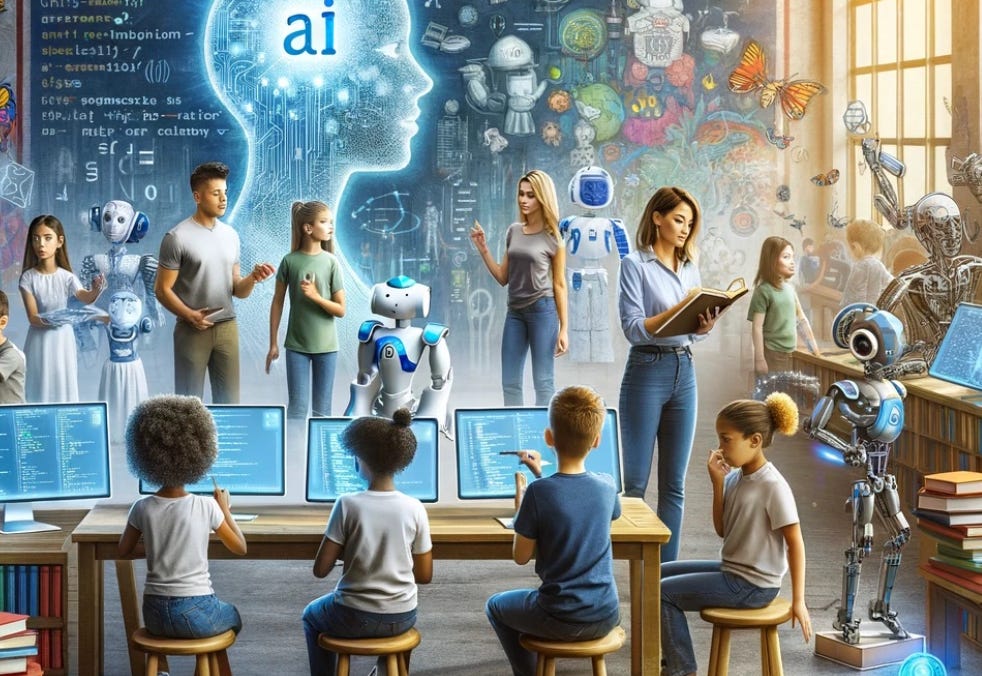Morning Team, AI often delivers information from massive databases without distinguishing fact from fiction, reshaping how we learn and trust new knowledge. Inside companies, leaders and employees are clashing over how and why to adopt AI. Meanwhile, universities are rapidly expanding their use, treating AI literacy as essential. But is full-speed adoption the right strategy? Stay curious.
📰 AI News and Trends
🌐 Other Tech news
When AI Can’t Tell What’s RealAI chatbots like ChatGPT can mislead by removing historical and cultural context, making fiction sound like fact. A recent example showed ChatGPT generating rituals that seemed satanic but were actually from Warhammer 40,000. This reflects a larger issue: AI often recycles internet content without attribution, blurring the line between fact and fiction. Without clear sources, users may mistake contextless answers for expert truth, raising concerns as AI becomes a go-to source of information.
AI tools like ChatGPT are changing how we understand history and knowledge—often in subtle but profound ways. By stripping language of its original context, AI flattens complex ideas, placing fiction, fact, and opinion side by side with equal authority. This can lead to a shallow grasp of history, where users know what happened but not why it mattered. Quick, confident answers replace deep learning and critical thinking, while biases or omissions in AI training data risk rewriting historical narratives without accountability. As AI becomes a dominant source of information, it risks reshaping not just how we learn—but what we believe to be true. 🧠 Learning Corner
The Internal War Over AI AdoptionA new survey of 800 executives and 800 employees reveals a major disconnect in AI adoption at work. While 75% of execs think their rollout is a success, only 45% of employees agree. Nearly 60% of execs are job-hunting for more AI-forward companies, yet 41% of younger workers admit to quietly resisting AI tools altogether. Poor implementation, fear of job loss, and unreliable tools are deepening tensions. One CEO bluntly summed it up” We're all sick of the chatbots.” 🧰 AI ToolsMetacognition
Download our list of 1000+ Tools for free. Is AI Literacy the New College Curriculum?While Western schools debate AI’s place in the classroom, top Chinese universities are going all in. Nearly 99% of faculty and students report using generative AI, and schools like Tsinghua and Renmin are making AI literacy part of general education—even mandating it for undergrads. Local AI models like DeepSeek are widely deployed on campus servers, offering free, advanced tools to students. With 80% of job listings now seeking AI skills, universities are shifting focus from academic integrity concerns to practical AI fluency—preparing students for China’s competitive job market and global tech race. 🚀 Showcase Your Innovation in the Premier Tech and AI Newsletter (link) As a vanguard in the realm of technology and artificial intelligence, we pride ourselves in delivering cutting-edge insights, AI tools, and in-depth coverage of emerging technologies to over 55,000+ tech CEOs, managers, programmers, entrepreneurs, and enthusiasts. Our readers represent the brightest minds from industry giants such as Tesla, OpenAI, Samsung, IBM, NVIDIA, and countless others. Explore sponsorship possibilities and elevate your brand's presence in the world of tech and AI. Learn more about partnering with us. You’re a free subscriber to Yaro’s Newsletter. For the full experience, become a paying subscriber. Disclaimer: We do not give financial advice. Everything we share is the result of our research and our opinions. Please do your own research and make conscious decisions. |
Tuesday, July 29, 2025
🎓Is AI Literacy the New College Curriculum?
Subscribe to:
Post Comments (Atom)




No comments:
Post a Comment